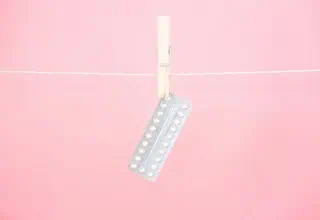
The ovarian hormones estradiol and progesterone are beneficial for general health. That means natural ovulatory menstrual cycles are beneficial because ovulation is how women make those hormones.
Lara Briden - The Period Revolutionary
Leading the change to better periods and hormones
Articles about common period problems including irregular periods, PCOS, endometriosis, painful periods, PMS, PMDD, heavy periods, and perimenopause. From the perspective of a women’s health specialist with more than twenty years of experience. Treatments include diet and lifestyle changes as well as simple nutritional supplements such as magnesium and zinc.

The ovarian hormones estradiol and progesterone are beneficial for general health. That means natural ovulatory menstrual cycles are beneficial because ovulation is how women make those hormones.

Natural anti-androgen supplements reduce testosterone or block its effects. In women, androgen blockers can improve androgen or testosterone symptoms, such as hirsutism, acne, and weight gain. In other words, they can treat PCOS (polycystic ovary syndrome) and other types of androgen excess.

The pill is commonly prescribed to “regulate periods,” but it can’t actually do that because withdrawal bleeds from contraceptive drugs are not real menstrual cycles.
In episode one of my podcast/YouTube video, I discuss real periods versus pill bleeds and why there’s no medical reason to bleed monthly on the pill.
I also look at the difference between contraceptive drugs and real hormones.

Progesterone is usually soothing to mood but can sometimes cause anxiety.
A negative mood reaction to changing levels of progesterone is called neurosteroid change sensitivity or premenstrual dysphoric disorder (PMDD) and affects about one in twenty women.
Also, see Top 6 natural treatments for premenstrual mood symptoms.